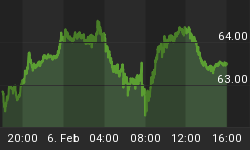Did the election last week really mean that much? I took to my Twitter account on Tuesday to point out that the change in control of the Senate from Democrat to Republican actually means very little, despite efforts by politicians and the mainstream media to convince us otherwise. Yes, power shifted, I wrote. But the philosophy on Capitol Hill changed very little. The warfare/welfare state is still alive and well in Washington.
Some were critical of my comment that, "Republican control of the Senate equals expanded neo-con wars in Syria and Iraq. Boots on the ground are coming!"
But unfortunately my fears were confirmed even sooner than I thought. Shortly after the vote, President Obama announced that he would double the number of US troops on the ground in Iraq and request another $5.6 billion to fight his war in the Middle East.
The President also said on Wednesday that he would seek a new authorization for the use of force in Iraq and Syria. He said that a new authorization was needed to reflect, "not just our strategy over the next two or three months, but our strategy going forward."
That sounds like boots on the ground in an endless war.
Senate Democrats had been competing with Republicans over who would push a more aggressive foreign policy. This may explain their miserable showing on Tuesday: it is likely the honest, antiwar progressives just stayed home on election night. But with the Republican victory bringing to leadership the most hawkish of the neoconservatives like John McCain, the only fight over the President's request to re-invade Iraq will be Republican demands that he send in even more soldiers and weapons!
Likewise, the incoming Republicans in the Senate have expressed a foolhardy desire to continue resurrecting the Cold War. They demand that Russia be further sanctioned even as the original reason for the sanctions - claims that Russia was behind the downing of Malaysian Airlines flight MH-17 - has been shown to be false. They want to send weapons to the US-backed government in Ukraine even through it will result in more civilians killed in east Ukraine. Their dangerous Russia policy may even turn the new Cold War into a hot war, which would be catastrophic.
On the domestic front, I do not hold out much hope that the next Congress will give more than lip service to reducing spending. What is more likely is Republicans will support dramatic increases in welfare spending as long warfare spending is increased by an equivalent, or greater, amount. That is what is called "compromise" in Washington.
One positive development from Tuesday is the slightly improved chance for a roll-call vote on "Audit the Fed." Most of the Senators who are likely to assume leadership roles next year are co-sponsors of the bill. However, special interests that benefit from Fed secrecy are very influential in both parties, so it will be up to the people to continue to pressure Congress for a Senate vote.
Elsewhere, there may also be some rollbacks and reforms of some of the worst parts of ObamaCare, but a full repeal of the bill is unlikely. This is not just because there are still not the votes to override an inevitable veto. The insurance and pharmaceutical lobbies that benefit from ObamaCare are equally influential in both parties and have very deep pockets.
I ended my comments on election night by pointing out that while it may have been an important election, it was not most important ever. Ideas are what really count. And that is where we are winning!















